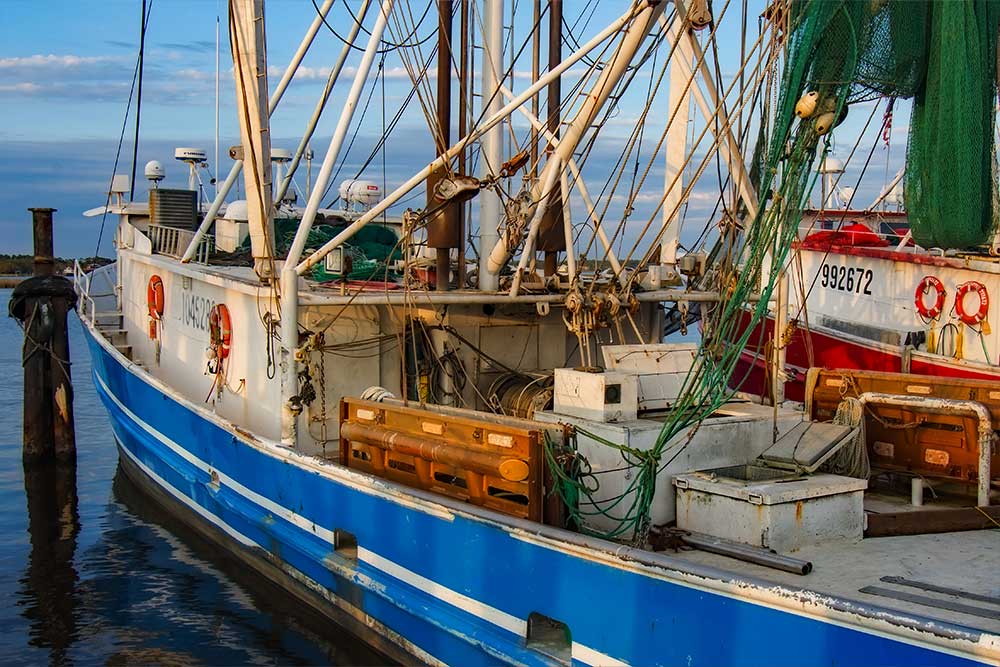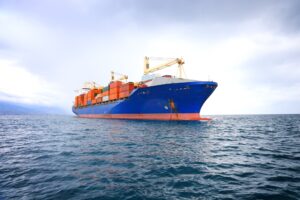Admiralty and Maritime Law

Knowledgeable Maritime & Admiralty Law Attorneys Serving Biloxi and the Mississippi Gulf Coast
As one of the oldest law firms in Mississippi, Rushing & Guice enjoys historical ties to the business lifeline of the Gulf Coast. So much of our business and recreation is connected to the water, and our practice reflects that deep connection.
Maritime law, or admiralty, is a combination of U.S. and international law that governs the wide range of issues unique to business and recreation on the water. These issues include everything from shipping contracts, vessel registration, oil spills, and diving accidents to Jones Act claims registration of commercial vessels and all aspects of operating passenger ships.
Traditionally, admiralty law focused on oceanic issues, but it has expanded to cover any public body of water, including lakes and rivers. Much of Mississippi commerce and recreation occurs on our Gulf coastline, along rivers and lakes, so maritime and admiralty law governs many issues and disputes.
What Is Maritime Law?
Maritime law, also known as admiralty law, governs legal matters related to navigation, commerce, injuries, and disputes that occur on or near navigable waters. As one of the oldest and most specialized branches of law, maritime law applies to activities on the high seas, inland waterways, and U.S. coastal regions, including the Gulf Coast of Mississippi.
This area of law includes a wide range of legal issues—such as vessel collisions, cargo disputes, offshore injuries, commercial shipping contracts, and environmental violations. Maritime law draws from U.S. federal statutes, international treaties, and long-established legal principles to regulate the conduct of individuals, companies, and vessels operating on navigable waters.
At Rushing & Guice, our attorneys bring decades of experience in handling maritime cases, offering knowledgeable representation to shipowners, workers, insurers, and businesses involved in the marine industry throughout the Mississippi Gulf Coast and beyond.
Maritime Expertise in Admiralty and Maritime Courts
Because admiralty laws are very specialized, attorneys who practice in this area must possess the experience and knowledge to effectively represent their maritime clients or those who have been injured or suffered losses at sea. At Rushing & Guice, we have built a successful admiralty practice that encompasses all aspects of maritime law. Our lawyers have years of experience practicing in Admiralty and Maritime Courts, where all maritime contracts, offenses, injuries, and torts, and all civil actions for matters related to the sea and ships, are litigated. Our experience includes representing clients involved in boating accidents, groundings, collisions, offshore employment injuries, and spills as well as contract disputes that arise from maritime commerce.
Major Maritime and Admiralty Federal Statutes
The maritime industry is regulated by four statutes passed by Congress, intended to maintain the safety of offshore, shipbuilding, and other maritime work. These statutes are:
- Jones Act: The Jones Act holds vessel owners and supervisors responsible for maintaining equipment and creating a safe work environment. Under common law, ship owners were responsible for compensating workers for injuries without regard to fault. However, the extent of recovery was limited. The Jones Act provides for greater compensation in the event that the shipowner created and maintained an unsafe work environment. Successful plaintiffs are entitled to lost wages, lost earning capacity, physical and mental anguish, medical care compensation into the future, and living expenses during recovery.
- Longshore and Harbor Workers Compensation Act: This law offers protection to maritime workers who don’t spend their time on vessels. Harbor workers, longshoremen, shipbuilders, repair workers, and other members of the offshore industry can sue for injuries caused by maintaining an unsafe work environment. Like the Jones Act, a successful plaintiff must prove employer fault to collect damages.
- Death on the High Seas Act: This law provides a cause of action in wrongful death for passengers on vessels operating outside the three-mile coastal limit. Fault must be proven. The Jones Act covers the workers and this statute covers the non-employees who might be killed due to unsafe conditions on vessels. However, this statute does not compensate for a full range of loss. There is no recovery for loss of companionship, pain and suffering, lost earning potential, or future medical expenses.
- Limitation of Liability Act: This 1851 act limits the liability of a shipowner to the value of the ship and its cargo at the time of the accident if it can be shown that the owner was unaware of the conditions that caused the injury or death of workers or passengers. The law has been highly criticized as obsolete, however, it still acts to limit the amount of damages available to injured parties.
Determining Jurisdiction

The court will determine whether the contract provides services to facilitate the drilling of the production of oil and gas on navigable waters. If so, the court will determine whether the contract provides or the parties expect that a vessel will play a substantial role in the completion of the contract. In cases not related to oil and gas exploration and development, the court will consider the nature and extent of the involvement of the vessel crew in carrying out the services anticipated in the contract.
Admiralty and Maritime Law is Still Evolving
Although one of the oldest areas of law, admiralty, and maritime law continues to evolve. Most recently, in 2019, the United States Supreme Court reconciled two prior decisions, ruling that punitive damages are not available to an injured seaman claiming injury due to vessel unseaworthiness. Keeping up with the areas where maritime law is continuing to change to meet new circumstances is something that our lawyers take seriously. With over 100 years of experience representing Gulf Coast Mississippi clients, we have the expertise to follow and, in some instances, press for novel interpretations of federal and state maritime laws.
Experienced Mississippi Maritime and Admiralty Attorneys for Gulf Coast Claims
At Rushing & Guice, our Mississippi maritime and admiralty attorneys represent both plaintiffs and defendants in complex maritime disputes in state and federal courts across the Gulf Coast. We bring decades of experience to the table and are well-versed in the unique procedures and laws that govern maritime claims under U.S. admiralty jurisdiction.
Our firm handles a wide range of maritime legal matters, including:
- Cargo damage and shipping disputes
- Vessel collisions and allisions
- Jones Act and general maritime personal injury claims
- Injuries sustained on navigable waters, at sea, or in port
- Claims involving tugs, towage operations, and harbor workers
- Marine insurance coverage and denial disputes
- Limitation of liability actions for vessel owners
- Vessel mortgage enforcement and maritime liens
- Vessel seizures and federal maritime arrest proceedings
Whether you’re a shipowner, injured seaman, marine insurer, harbor employer, or business involved in commercial shipping, our team is equipped to protect your interests in the highly technical and often high-stakes arena of admiralty law.
Maritime Finance Matters & Transactions
Additionally, we have extensive experience in maritime finance matters, including the buying and selling of vessels and the preparation and submission of all required documentation with the United States Coast Guard and other appropriate authorities. Maritime transactions are necessarily complex and individualized, requiring consideration of business, technical, financial, tax, regulatory, and environmental issues. Rushing & Guice has a full range of legal talent to expertly guide your maritime transactions or disputes.
A Deep Connection to the Gulf, Maritime & Admiralty Law.
Contact Rushing & Guice Today
At Rushing & Guice, experienced, aggressive, and innovative legal services on the Gulf Coast are a phone call away. Call us at (228) 374-2313 or fill out our online form to arrange for a limited initial consultation. We look forward to hearing from you and look forward to the opportunity to serve as your attorneys.







